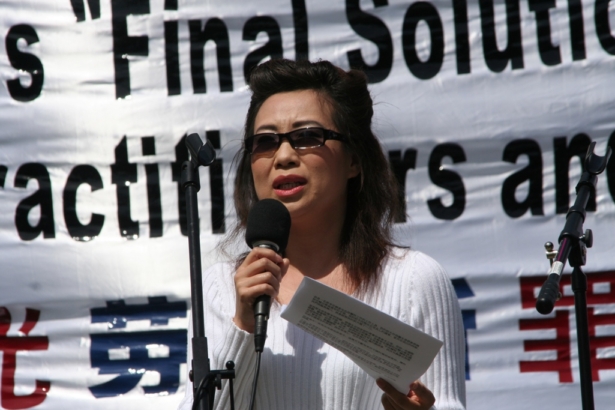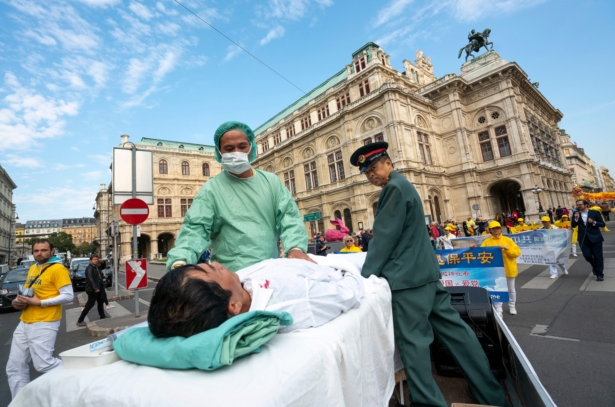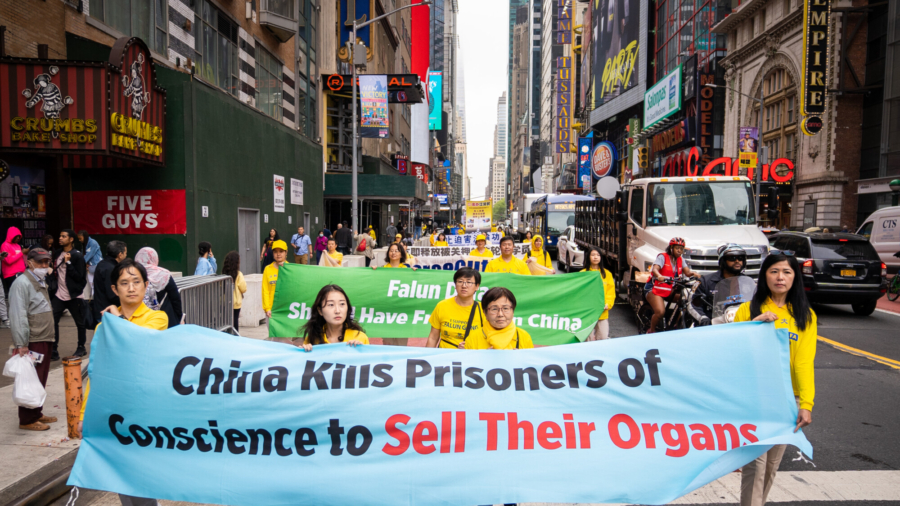Chinese officials and medical professionals involved in carving out organs from detained prisoners of conscience are being urged to stop their complicity in the crime following the death of former Chinese Communist Party (CCP) leader Jiang Zemin, the instigator of the grisly practice.
Jiang, who ruled the country from 1993 to 2003, died of leukemia and multiple organ failure Wednesday. He was 96.
In 1999, the then-leader directed the nationwide persecution of the faith group, Falun Gong, which has resulted in millions of adherents being thrown in detention facilities over the past two-plus decades for nothing other than refusing to renounce their beliefs.
An untold number of detained adherents have been victims of the regime’s state-sanctioned forced organ harvesting.
Shortly after the announcement of Jiang’s death, rights groups issued statements urging an end to the disturbing practice.
“We urge all Chinese Communist Party members and medical professionals who are involved in the forced removal of organs from Falun Gong practitioners to stop the crime immediately,” said Theresa Chu, the head of the Legal Commission of Universal Declaration on Combating and Preventing Forced Organ Harvesting, a Taiwan-based non-profit.
Torsten Trey, executive director of Doctors Against Forced Organ Harvesting, a Washington-based advocacy group, predicted that there will be a “power vacuum” after the death of the former CCP boss due to his lingering influence within the Party.
“I assume that a portion of the forced organ harvesting industry will collapse very soon, and we might see whistleblowers or other witnesses coming to public, as they try to seek a legally safer shore,” Trey told The Epoch Times.
“The efforts to hide and conceal the forced organ harvesting will probably fade and open up leaks,” he added.
A Direction From Jiang
Evidence of forced organ harvesting at the hands of the CCP first emerged in 2006. That year, multiple witnesses approached The Epoch Times attesting to the existence of the horrific practice that essentially turned the vast pool of Chinese prisoners of conscience, most of whom were adherents of Falun Gong, into a living organ bank.

Among them was Annie (an alias), a former worker at a Chinese hospital in northeastern China who first shed light on the abuse. Annie said that her ex-husband, a military surgeon at the same hospital, had forcefully removed the corneas of thousands of Falun Gong practitioners since the early 2000s.
These allegations were confirmed “beyond a reasonable doubt” by an independent people’s tribunal in 2019, which after considering evidence from more than 50 witnesses, determined that such an atrocity had taken place for a long period of time on a substantial scale, with Falun Gong practitioners being a primary organ source.
In reaching its finding, the body, known as the China Tribunal, rejected claims by the Chinese regime that from 2015, all organs for transplant were sourced from an official organ donation system.
Falun Gong, also known as Falun Dafa, consists of moral teachings based on the principles of truthfulness, compassion, and forbearance, along with meditative exercises. Since its introduction in China in 1992, the practice surged in popularity, leading to an estimated 70 million to 100 million adherents in the country by the end of the decade.
Viewing the enormous popularity as a threat to the Party’s control, Jiang personally initiated a violent campaign to “eradicate” the spiritual group in 1999.

With millions of adherents detained across China’s labor camps and prisons and other facilities, the CCP, through forced organ harvesting, found a macabre way to monetize the captive population, something that had previously been considered unimaginable.
“This is an outrageous abuse of the medical discipline that lasted for over 20 years and has cost the lives of countless innocent Falun Gong practitioners,” said Trey.
A senior Chinese military official, in a 2015 phone call made by a group investigating the persecution of Falun Gong, acknowledged that the regime’s killing-for-profit was an instruction from Jiang himself.
“At the time, it was Chairman Jiang. There was an instruction to start this thing, organ transplantation,” said Bai Shuzhong, former minister of health of the People’s Liberation Army General Logistics Department.
With Jiang’s passing, Trey called for an immediate end to the crime.
“Xi Jinping did not start the forced organ harvesting, but he allows it to continue. Without Jiang, it would be best to immediately end the practice of forced organ harvesting, which could result in a substantial drop in transplant numbers,” he said, referring to the CCP’s current leader.
In Wednesday’s statement, Chu, an international human rights lawyer, also urged CCP officials, doctors, and nurses who have been accomplices in this practice to “keep all evidence and documents regarding the CCP’s order, plan, and implementation of the forced organ harvesting of Falun Gong.”
With this, Chu said they could “make amends as being held responsible for organ harvesting in the future.”
For those determined to implement Jiang’s order, Chu vowed to continue to hold them accountable.

Call for International Action
As forced organ harvesting continues in China, more officials and medical bodies in the West are starting to break their silence on the issue.
British lawmakers on Nov. 30 pledged to push ahead with the “Procurement Bill,” an amendment designed to stop any service or goods that are involved in forced organ harvesting from entering the UK. The bill, if passed, would also ban British professionals from training Chinese organ transplant services.
“Former CCP leader, Jiang Zemin, who gave the orders to “eradicate” Falun Gong “using any means necessary” & set up 6-10 office, a Police department specifically for that purpose, has died. @LordPhilofBrum will today move [an] amendment on forced organ harvesting,” Lord David Alton wrote on Twitter, referring to Lord Philip Hunt, a member of the U.K. Parliament and a former British health minister who proposed the bill.
Some U.S. lawmakers in 2021 introduced the first legislation in the country to combat global organ trafficking.
In the medical sector, doctors and advocates have urged transplantation communities to stop collaborating with China and to ban Chinese research papers about organ transplantation.
Earlier this year, a first-of-its-kind restriction was issued by the International Society for Heart and Lung Transplantation, a non-profit transplantation association. The group announced that it would stop accepting transplantation research papers from China, in an effort to end the abuses currently taking place under the communist regime.
“The international society is overdue to take significant, meaningful steps to end forced organ harvesting in China. Now is the time to help the Chinese people to end this barbaric practice,” said Trey.
”If one cannot impose changes on the Chinese government, at least Western parliaments are completely free to host hearings, pass resolutions or adopt laws.
“We have that freedom here in the West, what are we waiting for?”

